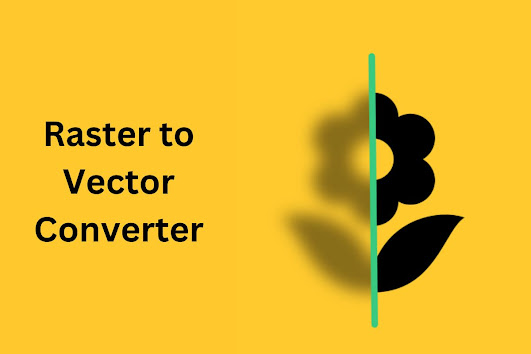In today's digital age, images play a pivotal role in
communication, branding, and marketing strategies across various industries.
From logos and graphics to architectural plans and technical drawings, visual
content is omnipresent. However, not all images are created equal, and many
encounter challenges when it comes to scalability, quality, and versatility.
This is where raster to vector conversion services come into play, offering a
transformative solution that enhances the flexibility and usability of digital
imagery.
Understanding Raster and Vector Images
Before delving into the intricacies of raster to vector
conversion, it's essential to grasp the fundamental differences between raster
and vector images.
Raster Images: Raster images, also known as bitmap images,
are composed of a finite number of pixels arranged in a grid format. Common
raster file formats include JPEG, PNG, and GIF. While raster images excel at
capturing complex details and color gradients, they often suffer from
limitations in scalability. Enlarging a raster image can lead to pixelation and
loss of quality.
Vector Images: In contrast, vector images are constructed
using mathematical equations to define shapes, lines, and colors. Unlike raster
images, vectors are resolution-independent, meaning they can be scaled
infinitely without sacrificing quality. Popular vector file formats include
SVG, AI, and EPS. Vector graphics are ideal for tasks requiring precise scaling
and editing, such as logos, icons, and illustrations.
The Role of Raster to Vector Conversion Services
Raster to vector conversion services bridge the gap between
raster and vector images, empowering businesses and individuals to leverage the
benefits of both formats. Here's how these services work and the advantages
they offer:
Precision Conversion Algorithms: Raster to vector conversion
involves algorithms that analyze raster images pixel by pixel, identifying
shapes, contours, and patterns. These algorithms then recreate the image using
vector primitives such as lines, curves, and polygons. Advanced conversion
tools employ machine learning techniques to improve accuracy and efficiency,
ensuring faithful representation of the original image.
Scalability and Versatility: By converting raster images to
vectors, businesses gain the ability to scale their graphics infinitely without
compromising quality. Whether resizing a logo for a billboard or printing
technical diagrams on a small pamphlet, vector images maintain crispness and
clarity at any size. Moreover, vector graphics are easily editable, allowing
for effortless modifications to colors, shapes, and layouts.
Enhanced Compatibility and Accessibility: Vector images are
widely supported across various software applications and platforms, making
them compatible with graphic design software, CAD programs, web development
tools, and more. This compatibility enhances workflow efficiency and
facilitates seamless integration of graphics into diverse projects.
Additionally, vector graphics are lightweight compared to their raster
counterparts, reducing file sizes and optimizing performance, particularly in
web and mobile applications.
Improved Printing Quality: For print materials such as
brochures, banners, and packaging, high-resolution vector graphics ensure
sharpness and detail, even at large sizes. Raster to vector conversion enables
businesses to maintain consistency and professionalism in their printed collateral,
enhancing brand perception and customer engagement.
Also Read: The Crucial Role of White Hat SEO in Boosting Ecommerce Success
Applications Across Industries
Raster to vector conversion services find applications
across a myriad of industries:
Graphic Design and Branding: Design agencies and marketing
firms utilize vector graphics to create logos, branding materials, and
promotional assets with unparalleled precision and versatility.
Architecture and Engineering: Architects and engineers rely
on vector-based CAD drawings for architectural plans, technical diagrams, and
blueprints, enabling precise measurements and revisions throughout the design
process.
Textile and Fashion Design: Fashion designers leverage
vector graphics to develop intricate patterns, textile designs, and garment
prototypes, facilitating collaboration with manufacturers and ensuring
consistency in production.
Mapping and GIS: Geographic information systems (GIS)
professionals utilize vector data for mapping, spatial analysis, and geographic
visualization, supporting informed decision-making in urban planning,
environmental management, and resource allocation.
Conclusion
In a world driven by visual communication, raster to vector conversion services serve as a cornerstone for enhancing image quality, scalability, and versatility. By harnessing the power of vector graphics, businesses and creative professionals can unlock new possibilities in design, branding, and productivity across a multitude of industries. Embracing this transformative technology not only elevates the visual aesthetics of digital content but also fosters innovation and efficiency in a rapidly evolving digital landscape.

